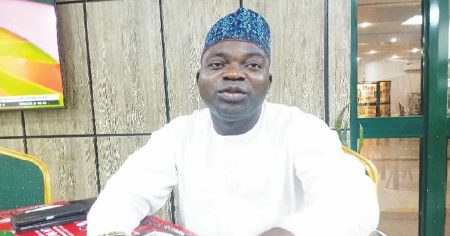The German Embassy in Accra has issued a heartfelt tribute to the late Charles Kwadwo Fosu, affectionately known as Daddy Lumba, recognizing his indelible mark on the world of music and culture. The Embassy’s statement, released on Monday, July 28th, expressed profound condolences to Ghanaians and fans worldwide, acknowledging the profound impact of the legendary highlife musician whose legacy, they declared, would undoubtedly endure the passage of time. They emphasized the pivotal role Germany played in shaping Lumba’s artistic journey, highlighting his formative years spent in the country during the late 1980s, a period that witnessed his transition from gospel music to the vibrant rhythms of highlife. This period marked a significant turning point in his career, culminating in the formation of the iconic Lumba Brothers with fellow musician Nana Acheampong.
The Embassy’s statement underscored the importance of Germany as the birthplace of “Borga Highlife,” a genre pioneered by Lumba and Acheampong that fused traditional Ghanaian musical elements with Western influences, particularly those emanating from the Ghanaian diaspora community in Germany. Lumba’s time in Cologne, coupled with studio work in Düsseldorf and Monheim am Rhein, fostered creative collaborations with German producers, enriching his musical style and contributing to its evolution. These experiences, the Embassy noted, played a crucial role in shaping his distinctive sound, blending the rich tapestry of Ghanaian musical traditions with the dynamic energy of Western musical trends.
Daddy Lumba’s musical journey is inextricably linked to Germany. It was there that he not only forged the Lumba Brothers partnership but also immersed himself in the vibrant cultural scene, absorbing musical influences that would ultimately shape his unique sound. The collaboration with German producers provided him with access to advanced recording technology and exposed him to different musical perspectives, further enriching his artistic vision. The Embassy’s statement highlighted the significance of this cross-cultural exchange, recognizing the importance of Germany in fostering Lumba’s artistic growth and the development of his signature style.
The Embassy further emphasized the cross-cultural influences that permeated Lumba’s music, citing his 1998 hit “Homeless,” which incorporated German phrases, as a prime example of his ability to seamlessly blend linguistic and musical elements. This song, they noted, stands as a testament to his artistic versatility and his capacity to bridge cultural divides through music. The Embassy’s tribute celebrated Lumba’s artistic excellence, recognizing his talent for weaving together diverse musical traditions to create a unique and captivating sound that resonated with audiences both in Ghana and internationally. They honored his contributions to building enduring cultural connections between Ghana and Germany through his music.
Daddy Lumba’s passing on Saturday, July 26, 2025, at the age of 60, sent shockwaves throughout the global music community. Tributes poured in from around the world, commemorating the life and work of a musical icon who played a pivotal role in defining modern Ghanaian highlife and propelling it onto the international stage. His music transcended geographical boundaries, connecting with listeners across continents and cementing his status as a true global ambassador for Ghanaian music.
The German Embassy’s heartfelt tribute underscores the profound impact Daddy Lumba had on the music industry and the enduring cultural connections he fostered. His legacy as a pioneer of Borga Highlife, a genre that epitomizes the fusion of Ghanaian and Western musical traditions, will forever be associated with his time in Germany. His music, a testament to his artistic brilliance and cross-cultural influences, continues to resonate with audiences worldwide, cementing his place as a legendary figure in Ghanaian music history. The statement serves as a poignant reminder of the power of music to transcend borders and unite people through shared cultural experiences.














